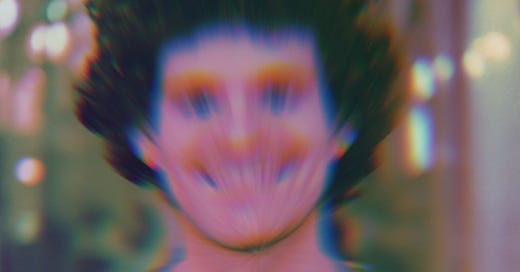Apologies for the lateness of this week’s installment, I’m celebrating a big family birthday. Today’s installment will be sketchy and exploratory, and therefore paywalled. Be sure you’ve read last week’s essay on why Rationalism is far scarier than it sounds.
“It is an illusion to believe that being more active means being freer.” - Byung-Chul Han
I recently updated my Twitter bio to describe myself as a “Financial fraud theorist.” It seems a fair description of my approach to Sam Bankman-Fried.
In my former life as an academic, I was a “social theorist,” among other things. “Theory” sounds very vague, but it denotes a specific way of thinking - one that seeks the deep, structurally and historically grounded reasons that things happen. The vagueness of the term does track with the breadth of the factors involved, and their interconnections - between, for example, economic structures and particular patterns of thought and behavior that tend to develop around them.
Korean-born German philosopher Byung-Chul Han (Berlin University of the Arts) has been increasingly prominent in “theory circles,” and the first piece of his work to be translated into English is directly relevant to Sam Bankman-Fried. “The Burnout Society” is in a very broad sense an analysis of late capitalism, but with a specific focus on what the acceleration of economic competition does to our minds and spirits.
“Multitasking is commonplace among wild animals. It is an attentive technique indispensable for survival in the wilderness … That is why animals are incapable of contemplative immersion.”
-Byung-Chul Han
It’s a very short book, really more of a pamphlet, at barely over 50 pages. It was written in 2015. That makes it all the more remarkable that in so many different ways, it describes Sam Bankman-Fried.
Han diagnoses a society in which humans are entirely instrumentalized into work, fueled by pharmaceutical accelerants, and driven into depression – and as a result, robbed of not only emotional connection, but of deep understanding. The ideal human subject of the achievement society, like Sam Bankman-Fried, will do a lot, and say a lot, but will know very little, and comprehend nothing.
Finally, Han describes the high-achieving figure at the center of all this in terms of homo sacer: The human who can be sacrificed. Sam Bankman-Fried’s utilitarian consequentialist worldview, fostered first by his mother, Barbara Fried, held that all humans can be sacrificed, for good enough reasons. (This is a philosophical concept with a deeper set of meanings that I won’t be engaging with deeply for now.)
“Burnout Society” makes it clear why we need a theory of Sam Bankman-Fried: As I’ve tried to articulate before, he is the avatar of our age, like it or not. And not because of any unique feature in him - but because the people around him created him.
Then they sacrificed him to their godless ideology of achievement.
Discipline vs. Achievement
The starting point for Han’s analysis will be familiar to readers of Slavoj Zizek, or of Herbert Marcuse’s work on “repressive desublimation.” Han argues that while Victorian and industrial society valued control and discipline, postindustrial information society, which Han also diagnoses as “achievement society,” throws off the shackles of discipline and demands achievement at all costs.
Society, at the highest level, shifts from saying “no” to saying “yes” - and from placing limits, to constantly transgressing limits. This shift, Han argues, inverts many psychological structures that we take for granted. Above all, it shifts the locus of violence and control from outside authorities, into the soul of the individual. “The violence of positivity does not presume or require hostility,” Han argues. “The violence of positivity does not deprive, it saturates; it does not exclude, it exhausts.”
This constant “yes” also leads to the signature mental disorders of our age - burnout, ADHD, and depression. “Burnout syndrome,” he writes, “occurs when the ego overheats, which follows from too much of the Same.”
We can see this manifest in several levels in SBF’s story. Most obviously, Barbara Fried and Joe Bankman inverted the “traditional” role of the parent as cautious disciplinarian, and instead participated in, enabled, and even architected Sam’s transgressions. They were the ultimate tolerant Boomer liberal parents, nodding and smiling (and cashing checks) as their kid set up an offshore asset exchange, what they might have viewed as the kind of transgression they came of age valorizing. And, as Boomers, they enjoyed the benefits of his destructive transgressions, while those lasted.
Keep reading with a 7-day free trial
Subscribe to Dark Markets to keep reading this post and get 7 days of free access to the full post archives.




